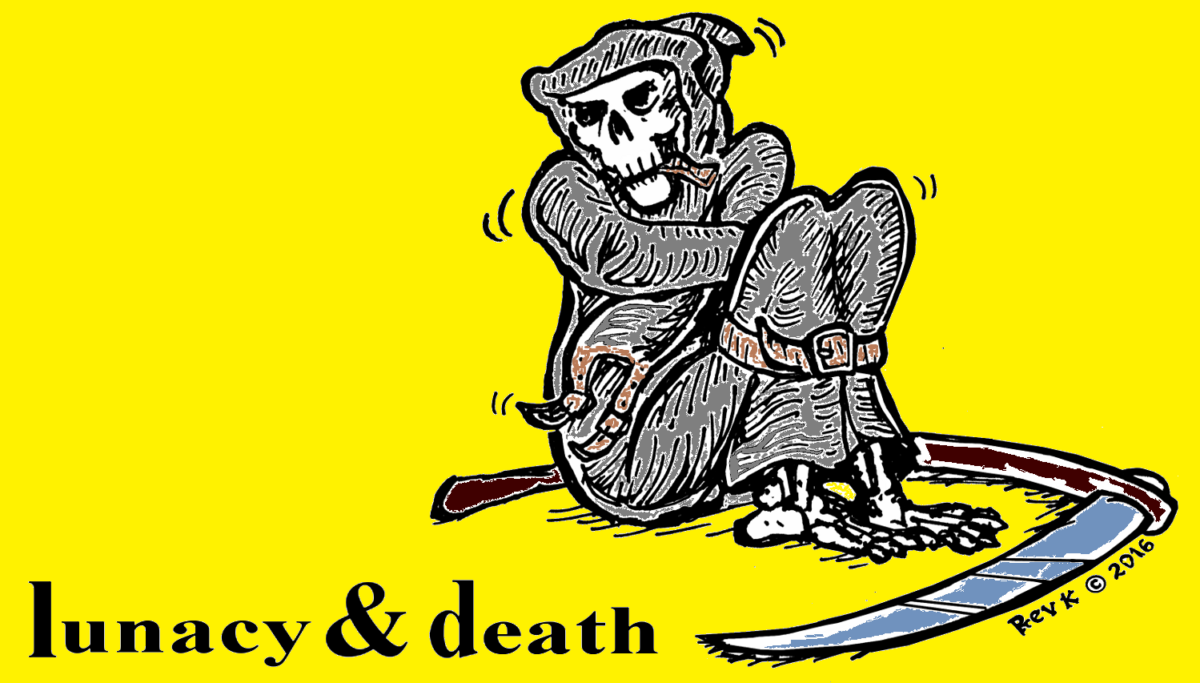Change here… Chapters are going to be shorter, like limited to a single incident or event. This change just dawned on me. No big change, really. Just shorter chapters. What’s come before will be chopped into similar blocks as those that follow from here on out, and will be done ruthlessly with the first edit. Cheers.
+ + +
Fifteen, part One
Will’s disappointment at what he found in Venlo was almost enough to send him back to the house. It was the heat and having his mother’s journals as his only diversion that kept him in town. Driving onto Mainstreet, almost relieved that Blom’s was closed for business on the holiday, he soon came to see that the entire population of Limburg County hadn’t occupied Maastricht. Venlo was busy in its own right, and swamped as well. This was another one of those things that Will had forgotten about, the anything but subtle competition between the County’s largest towns.
Maastricht was the county seat and had twice the population. Venlo was easily the more picturesque. Maastricht had national chain fast food, a place with edible pizza, a double screen movie theater and a Wal-Mart. Venlo’s businesses were “mom-and-pop”. Maastricht had gone strip mall. Venlo’s newest structures had been limited to the expansion of the trailer park after the feedlot shut down. Maastricht had Broadway, four lanes running north and south, and Central Ave., another four lanes east and west, intersecting at the middle of town. Maastricht had four stop lights. Venlo had not a one. Mainstreet, one word, not two, was the only street that could be considered a thoroughfare, which it actually wasn’t, due to the Wahpekute. Maastricht had the ballfields complex, a twelve lane bowling alley, a municipal nine-hole golf course. It also had a park, but it was nothing more than four square blocks of grass, trees, a pavilion, a dozen picnic tables and half as many permanent charcoal grills. Venlo, despite its meager number of residents, had two parks; “Central Park”, located on the west side of town and a block off the city square, resplendent with a bandshell/gazebo, and its own picnic tables and grills, abutting the single ballfield, a glorified sandlot with a backstop, benches for dugouts and a wobbly set of wooden bleachers. The other was “Waterside Park”, the wide strip of grass and benches at the end of town on the north bank of the Wahpekute, the place where Will had idled that first morning in Limburg County since becoming a property holder.
Both towns held Independence Day parades.
Will had no more than gotten past the first stop sign when he saw the town was clogged. Beneath the bunting festooning every streetlight—Venlo: ornate cast iron, Maastricht: “bentstraw” LED—were solid rows of parked vehicles. Will shut down the air conditioning and lowered the windows as he approached the fountain. Smoke was drifting across the intersection, carrying the aroma of roasting meat. He was suddenly famished. The fully loaded bratwurst lunch he’d been looking forward to at the ballgame was scrapped because of the Sheriff. As he idled past, he looked toward the park. More bunting, every grill seemed to be smoking, people everywhere. Though he couldn’t see the gazebo, he could hear music, occasionally drowned out by a string of exploding firecrackers.
Idling past the fountain, he could see the end of Mainstreet and the entry to the other park. Another crowd, glistening wet skin and swim suits. Dipping in the Wahpekute was an activity Will had never indulged in as a kid. It was forbidden.
Since his earliest memory, Will had been warned off the murky flowage that bordered the front yard of his grandparent’s residence. Being caught within five feet of it guaranteed a tongue lashing and the threat, if not the actuality, of a good spanking. Reasons for this prohibition became more elaborate, exponential to his understanding. For the first few years the concerns were solely focused on the possibility of drowning. As he grew older, the contamination associated with the turgid water became the chief cause of concern. By the time he could rove about the property unsupervised, drowning had ceased to be a threat. He could swim by the time he was eight years old, and warning him away from water had become useless. There was a swimming pool in his backyard in the Cities, for crying out loud, and he’d long learned it was deeper than the river, mucky riverbed notwithstanding. Asphyxial death was replaced by toxicity. Farm run-off, fertilizer and pesticides, while good for crops, it was poison for all other life forms. He began hearing stories of six legged frogs. and fish—the only types he knew of that lived in the Wahpekute River were carp and bullheads—found without eyes and malformed fins.
“One dip in that cesspool,” his mother had told him, “and you’ll start growing webs between your fingers and toes.” No one had mentioned the river had also served as a sewer for the house.
His arguments that he’d seen kids in Venlo swimming in the river were immediately qualified.
“Those brats have nothing to lose. They’re already contaminated, genetically,” his mother shot back. “They want to end up as circus freaks. It’s the only way they’ll be able to make a living once they leave this shitshow town.”
By the time Will was old enough to dismiss the mutation threat, cancer entered the picture. “There are so many carcinogens in that water, the tobacco companies are green with envy,” he heard. “Even your hair will start sprouting tumors. You want to die looking like something growing under a rotten log, be my guest.”
When he hit his teens, and had the capacity to ignore any threat at all, he’d lost all interest in the dirty stream.
